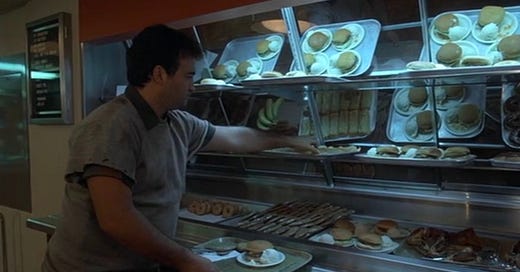Some dialogues spawned by a recent bit on legalizing prostitution reminded me of a political reality: Every one of us has some libertarian flowing through our veins. We all have things we want government to keep its nose out of, activities and behaviors we feel should not be the subject of regulation, restriction, or prohibition. Yes, I do recognize that "libertarian" is a label in common vernacular, but it shouldn't be seen or treated as some sort of exclusionary "other." People do so all the time, unfortunately, with declarations of "I'm not a libertarian because I don't want X to be legal."
Yes, there are people who attest to "libertarian leaning," whether they be conservative or liberal. If you're among them, much of what I write is my attempt to coax you a bit further in the direction of liberty. But, if you reject the label as an unworkable fantasy, but nevertheless do advocate for certain forms of liberty, I ask "what's wrong with a "libertarian-leaning" label? Is it a fear of "guilt-by-association?" If so, shouldn't you reject your preferred label as well, because there are "more so" people who also embrace that label?
That aside, I've experienced many, many interactions where people reject the "l" label because it doesn't get them (or they don't see how it gets them) a desired outcome in a particular policy area. That's why I borrow from the phrase "cafeteria Catholicism" to offer up today's title. It’s like “I can’t be a libertarian because I don’t agree with a particular idea.” Have you heard “I can’t be a Democrat/Republican because I don’t agree with every position” much?
It is both fact and long-running joke that libertarians love nothing more than denouncing each other as “not true libertarians.” This occurs even when people agree with each other on 99+44/100% of matters. This adds a bit of a “clown” element to the movement (and, especially, the party, with which I neither have nor want any involvement). But, the principles of liberty aren’t the exclusive domain of libertarians, not by any stretch. We find some of those principles in both the Republican and Democratic parties, in liberalism and in conservatism. About the only place you find a dearth is on today’s Left, where your degree of liberty and personal autonomy is a function of your identity or identities and a “you are free to do as we tell you” allegiance to leftist principles.
It’s OK to call yourself libertarian-leaning, if you embrace some but not all that the hardcore libertarians espouse. It’s also OK not to embrace everything libertarians espouse. I don’t expect that most readers here agree with everything I advocate - it’d be a boring echo chamber if you did, and we’d then be obligated to engage in the petty denouncing on minuscule minutiae that’s the heart and soul of “true libertarian” gatherings (joking, of course, but maybe not…). The goal (well, my goal) of the liberty movement is to coax more people into more of it, and if you like liberty on some things, maybe you’ll take a taste of it in other things. The cafeteria offers something for everyone.





Guilty as charged. I do not fall into any of our political parties, and most often profess to "lean Libertarian". (It seems odd to me that Libertarians would even consider themselves as members of a party). But somewhere between 100% tyranny and anarchy lies peoples law, that mythical balance point where power is under control of the people, and government is allowed just enough to provide security, justice, and good order. And no more. Sadly, too many are happy to give all the power which government says it requires to provide those things. Additionally, they wish it to provide equal outcomes. The desires may differ between parties, but the reality is the same, cede power to government to shape the world the way I think it should be. This seems to be a growing, not shrinking phenomenon, and one where we seem past the tipping point. In the end, no "side will get what they wish, and the government will then tell you what you should be wishing for.
Another great column!